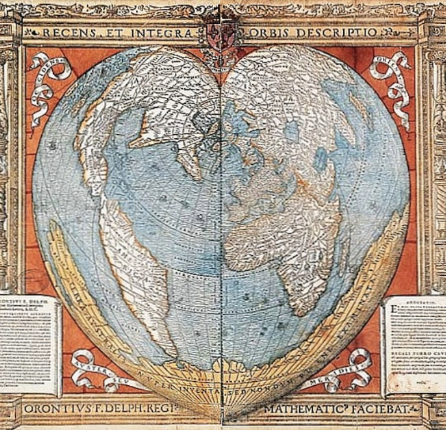
Bentley: What is it, Major Lawrence, that attracts you personally to the desert?
Lawrence: It’s clean.
You might think of the 1962 film Lawrence of Arabia as an adventure story, or an epic drama, or even a hagiography of colonialism, but try thinking of it, instead, as a romance between a man and the desert.
It’s a story grounded in topophilia.
Topophilia, perfectly illustrated in the above exchange between Peter O’Toole and Arthur Kennedy, is a profound and deep love for a landscape, a location, a geography. It is a love for place.
Are you thinking of grandma’s kitchen, or your college campus, or the street corner where you fell in love?
Yeah, that’s not it. That’s place attachment, which is love for A Place. Place attachment is “a cognitive-emotional bond individuals develop toward places.” It’s love borne of experience and memory.
Topophilia is more mysterious and more challenging to describe. It doesn’t require much experience, and memory is optional. It defies logic and explanation, as love so often does.
And it’s so rewarding, and fun, to write.
Start, of course, with the landscape that brings you the most joy. Again, not a place you love because of special moments, but that you love, because it exists. Maybe it’s the plains, or the Sawtooth Wilderness. Maybe it’s Michigan. Maybe it’s anywhere with a waterfront.
Next, take novelist Chuck Wendig’s advice, and avoid describing the terrain and the climate and the feel or smell of the breeze. Instead, “Think of setting as just another character. It looks and acts a certain way. It may change over the course of the story. Other characters interact with it and have feelings about it that may not be entirely rational.”
Sarah Broom did this in her Pulitzer Prize-winning memoir The Yellow House, describing summer in New Orleans: “The malicious New Orleans heat could seem to crawl inside, affecting your brain so that walking felt like fighting air. New Orleans humidity is a mood. To say to someone ‘It’s humid today’ is to comment on the mind-set. The air worsened the closer you came to the Mississippi River and wet you entirely so that by the day’s end, my hair was zapped of all its sheen and my clothes stuck to my body in all the wrong places.”
Last, don’t explain; swoon.
“For most surfers…waves have a spooky duality. When you are absorbed in surfing them, they seem alive. And yet waves are of course not alive, not sentient, and the lover you reach to embrace may turn murderous without warning. It’s nothing personal. Wave love is a one-way street.” — William Finnegan, Barbarian Days.
Your turn, writers. Write us a love letter to your favorite place. Tell it happy Valentine’s Day from me.

Kelly Caldwell,
Dean of Faculty


